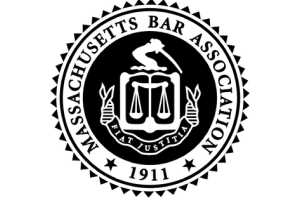SJC’s Decision in Commonwealth v. Buckley Upholds Pretextual Traffic Stops, Raising Concerns Over Erosion of Constitutional Protections
February 14, 2018.
In Commonwealth v. Buckley, 478 Mass. 861 (2018), the Massachusetts Supreme Judicial Court upheld the legality of a traffic stop under Article 14 of the Massachusetts Declaration of Rights, ruling that an observed traffic violation alone is sufficient justification for the stop, regardless of the officer’s underlying motive. The court affirmed the denial of the defendant’s motion to suppress evidence, reinforcing the authorization test and declining to reconsider the rule established in Commonwealth v. Santana.
Our Take:
An open and fearless rejection of governmental encroachment on our basic freedoms is a cornerstone of the great American experiment. Our constitutional system of laws is predicated on a shared understanding that to live in a free and lawful society, we must be free from suspicionless searches and seizures. The police practice of invoking civil traffic law violations as a pretext to stop, detain, question and search an alarming number of persons in our state, in the absence of any articulable suspicion of criminal wrongdoing, constitutes one of the clearest and greatest threats to our civil liberties. In Buckley, the SJC walked away from an opportunity to do away with this pernicious practice. In my opinion, it was a grave mistake to do so.
The court strained logic to defend its refusal to call “pretextual traffic stops” what they really are – suspicionless searches and seizures which undermine our most fundamental constitutional protections.
First, the SJC claims it cannot overrule Santana’s bright line rule because to do so would inject insurmountable complexities into the law of search and seizure. The SJC opined that a trial court could not reliably unravel a police officer’s subjective motivation in conducting a traffic stop. However, as in most such cases, a trove of evidence in Buckley illuminated the motivations of the officer who made the stop. The officer stopped the car only after a drug detective instructed him to do so. Immediately after the stop, plain clothes drug detectives appeared on the scene. Under such circumstances, the motivation for the stop was far from mysterious.
Nevertheless, the SJC maintained that the impenetrable nature of such riddles necessitated a bright line approach. However, this appears to be one of the few instances in search and seizure law in which the Court will only settle for a bright line rule. Where so many other search and seizure questions turn on “the totality of the circumstances,” or murky concepts of “proportionality,” the SJC’s lack of confidence in such a fact based approach here remains all the more perplexing.
Second, even if Santana were to remain intact, the evidence in Buckley should nevertheless have been suppressed. Santana authorizes an officer to stop a car for a traffic infraction, in order to give the driver a ticket. That is decidedly not what happened in Buckley. How often does an officer accost a speeder with a team of drug detectives, simply to write a ticket? What occurred in Buckley was a criminal investigation. Santana authorizes a limited type of seizure, which the instant seizure, viewed objectively, was not.
The SJC’s failure to recognize this fact echoes in its resolution of the petitioner’s second argument regarding the scope of the stop. Disappointingly, the SJC still views the scope of the stop only in terms of duration. This ignores the completely different dynamic that exists between an officer and a motorist in a traffic stop initiated as a pretext to launch a criminal investigation. When the stop shifts to any inquiry beyond the simple collection of a license and registration, the Commonwealth should be required to justify that change by demonstrating reasonable suspicion of criminal conduct.
These issues are important, especially in light of the widespread abuse of civil liberties occasioned by pretext stops, which abuse is most often felt in our minority communities.
But the SJC sanctioned the practice, by preferring a bright line rule. Of course, bright line rules are attractive because of their simplicity; they make for efficient disposition of matters in court.
But nothing, and much less the lure of simplicity in the resolution of court claims, can justify erosion of our civil liberties. The pursuit of liberty is not made more worthwhile because it is simple. Instead, we pursue liberty because we must do so to preserve our baseline assurance of human dignity owed to every person in this state.
Criminal practitioners are familiar with the script flowing from the permissive “authorization” approach to civil traffic stops on a routine basis. Armed with a nearly limitless hive of minor motor vehicle laws and regulations, it is not difficult for a motivated officer to find some reason to stop a car. The claimed civil traffic offense then leads to an unusually nervous occupant, an alleged furtive gesture, or a suspicious answer to a roadside interrogation. Next, an exit order is issued, “consent” to search is granted, or a drug-sniffing dog happens to be nearby. The result is arrest, though the subject was initially detained in the complete absence of reasonable suspicion.
Some might call these arrests the product of good police work, given the volume of arrests arising from suspicionless car stops. But aside from the fact that our system of laws abhors such Machiavellian post-hoc justifications, the fruits of these suspicionless stops tell only part of the story. The other, untold part of the story involves the remaining motorists similarly detained, but who police could not arrest in the absence of seized contraband or some other arrestable event. Where no arrest occurs, this part of the story remains unknown and untold. But as the Court has recognized time and time again, a disproportionate number of individuals targeted for these pretextual, suspicionless stops are minorities.
Just as in any other profession, most police officers are good and honest, while a minority are not. And while we trust our courts to ferret out dishonest police testimony, there is little assurance that it does so reliably. To the contrary, the court seems institutionally disinclined to question the veracity of police testimony. Few judges are open to seriously questioning a police officer’s credibility. Moreover, many prosecutors, police, and even some judges bristle at any attempt to do so. Thus, with most lawyers daring not to even question an officer’s truthfulness, the only realistic avenue for challenging a doubtful traffic violation is by exploring the possibility of pretext. However, the SJC’s decision forecloses this argument. As a result, the suspicionless seizure of motorists will continue to go effectively unchallenged. This is so whether or not any infraction actually occurred, and regardless of whether police would have ever stopped the motorist but for some inarticulable hunch, or other, more sinister motivation.
We cannot ignore the impact of pretextual car stops. They erode our core constitutional protection against arbitrary searches and seizures. Moreover, they serve only to widen a growing gulf of mistrust between the police and the communities they serve. Where for decades minorities have been subjected to profiling, to differential treatment based on the color of their skin, the way they talk, or the community in which they live, the fabric of trust which ought to bind the government and the people is instead torn apart.
Pretextual car stops unquestionably encourage arbitrary enforcement of the law. They erode our most basic constitutional protections. We know this, and we must speak against it until it stops. Instead, the SJC stood idle, favoring bright-line rules over the constitutional rule of law.
As the architects of our democracy put the finishing touches on the U.S. Constitution in Philadelphia, a woman asked Benjamin Franklin what they had created. He responded, “A republic, madam, if you can keep it.” After reading the SJC’s opinion in Buckley, I am left to wonder if we can.





